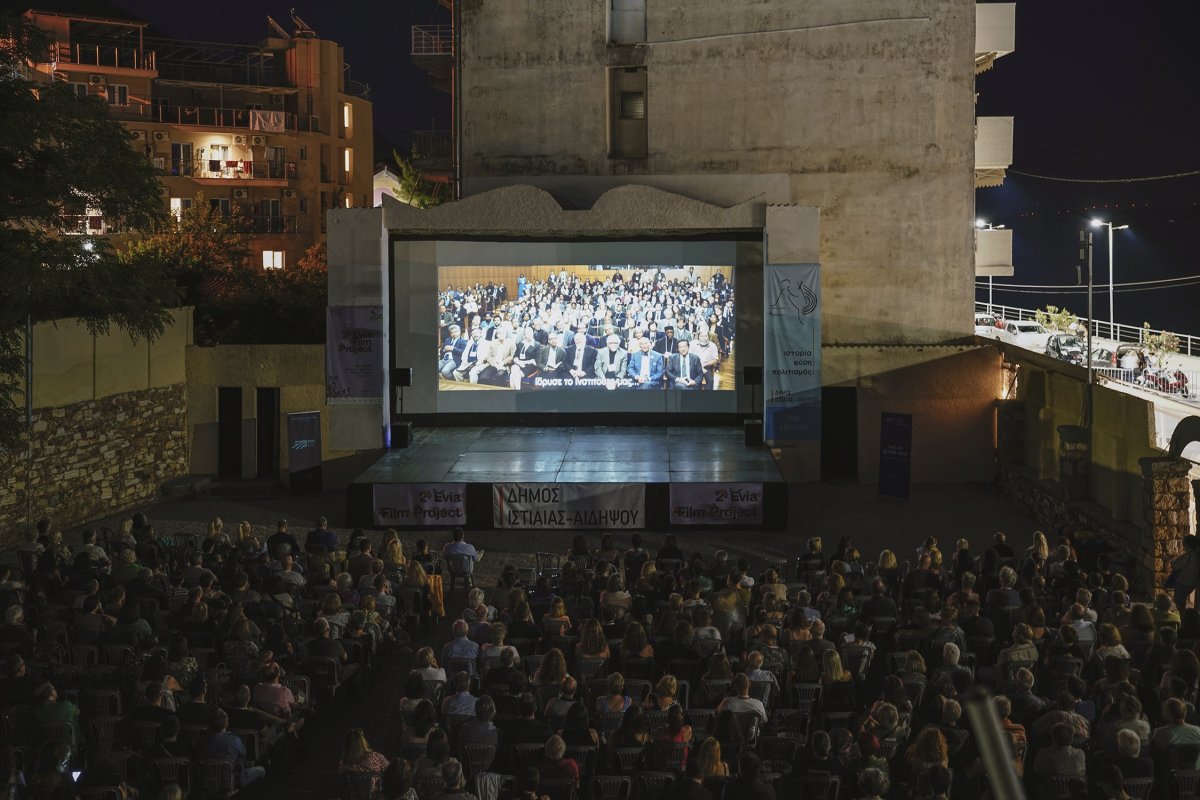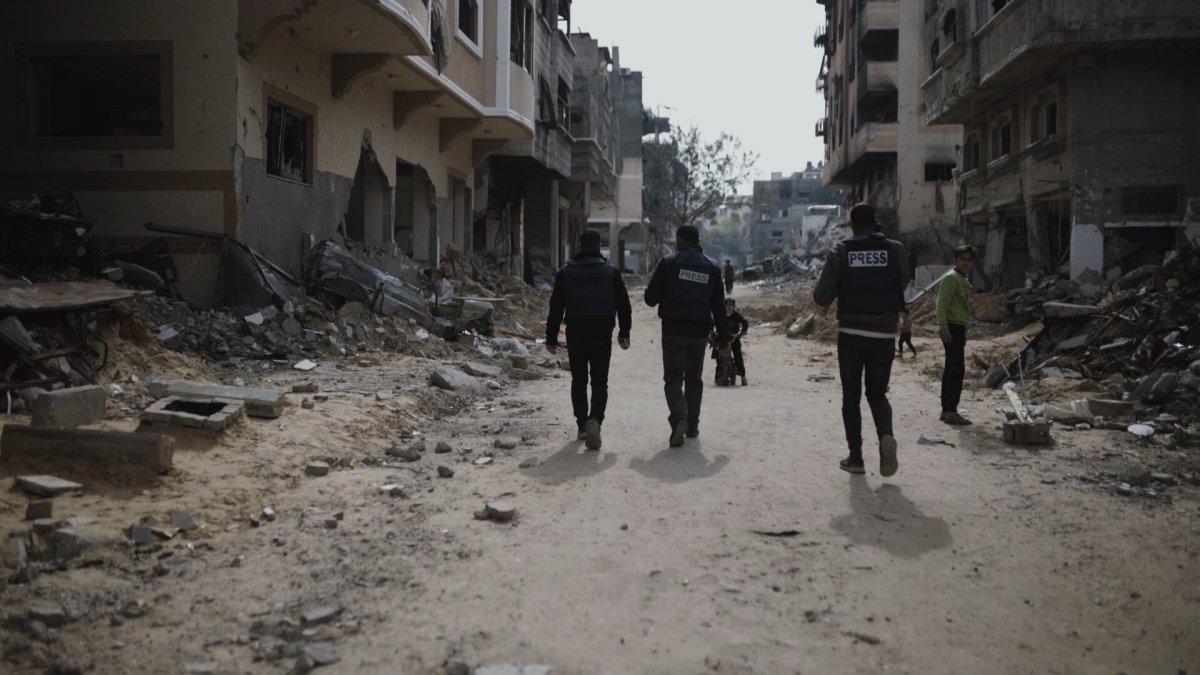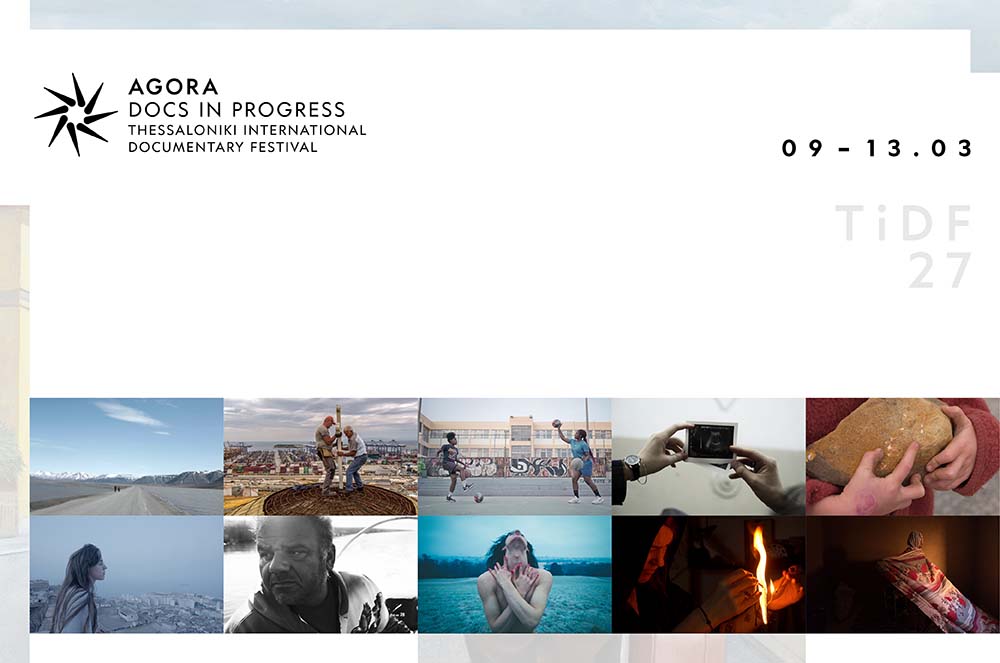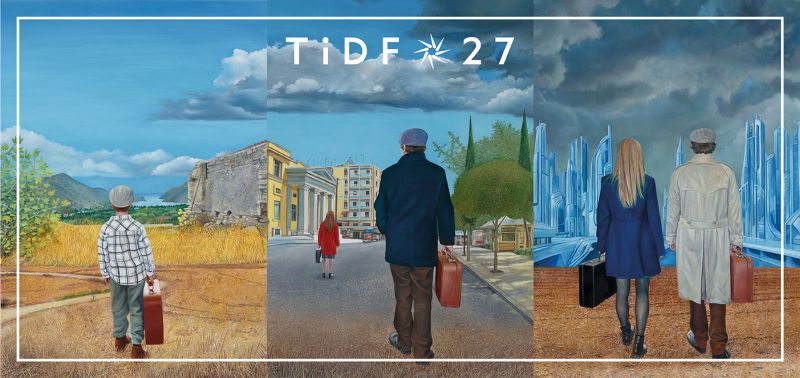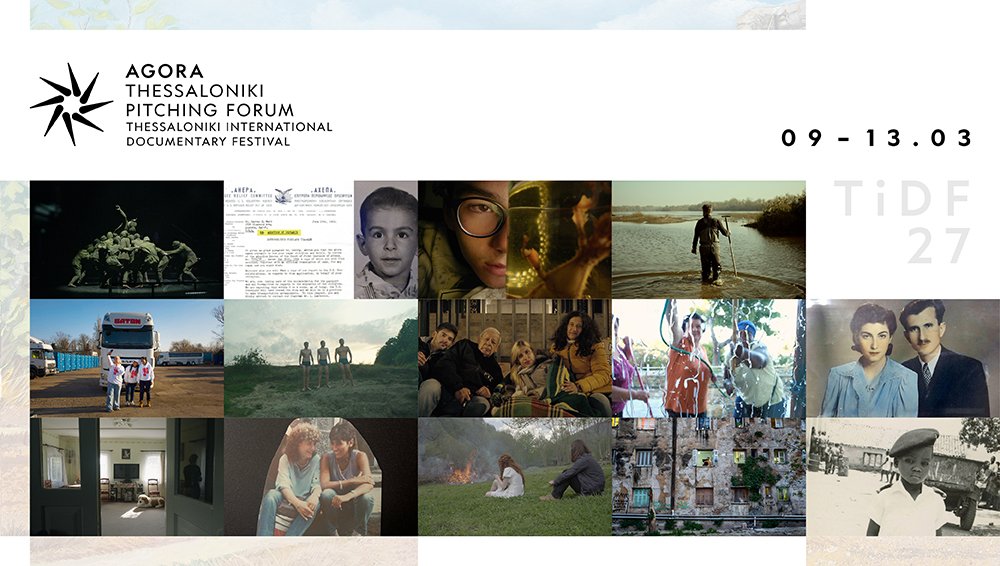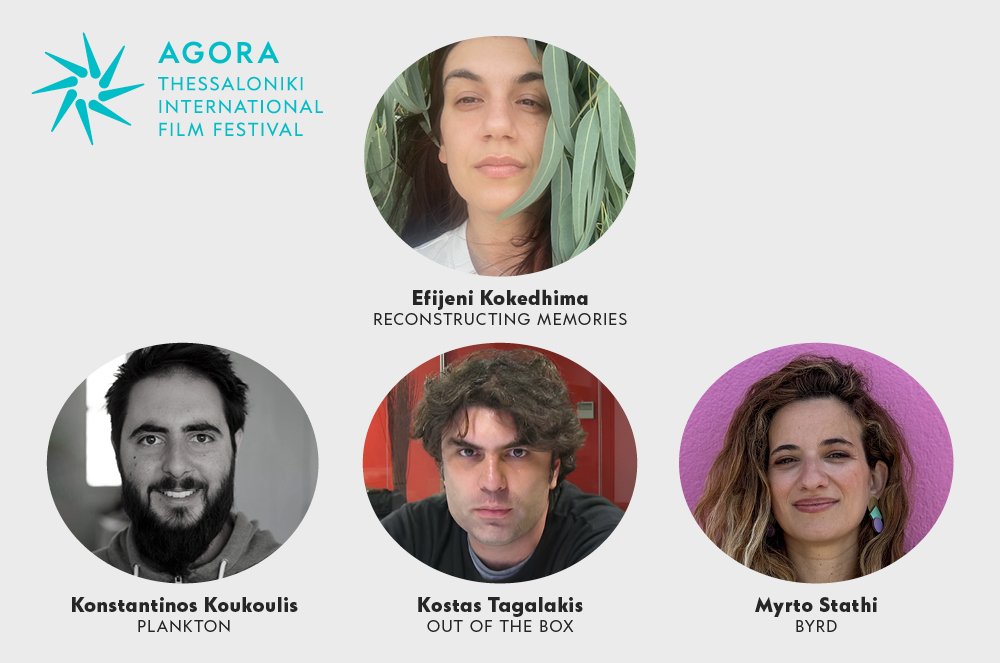The opening ceremony of the 2nd Evia Film Project was held on Tuesday June 20th, at the open-air ciné “Apollon” in Edipsos, honored by the presence of the renowned film director and scriptwriter Alexander Payne. The two-time Oscar winner director with the Greek roots presented his film, Downsizing, to the audience of Northern Evia and expressed being moved deeply by feeling himself as “a petal of the flowers of culture that blossom out of the ashes of a disaster”. The opening ceremony, also attended by the President of the Festival’s Board of Directors, Eleftheria Thanouli, as well as by Board Members, Maria Kriara and Pinelopi Valti, kicked off with Orestis Andreadakis, the Artistic Director of the Festival, and Elise Jalladeau, welcoming both the audience of Northern Evia and Alexander Payne.
“Thessaloniki International Film Festival is returning for a second consecutive year to Northern Evia, a place that we loved so much last year and that was severely hit by a natural disaster. This year, we would like to share our love for this place with film industry professionals from all over the world, who will present their films, work on their future plans, unveil the secrets of cinema, and most of all, discover the magical locations of Northern Evia, with the purpose of seeing them taking center stage on our film screens in the future. All the above, of course, are carried out having set as priority the protection of our environment and the raising of collective ecological consciousness, matched by actions and initiatives in our everyday life”, said before stressing the key role of the audiovisual field in accomplishing the goal of development.
“Over the last years, Greek movies, documentaries, fiction TV series, as well as virtual reality films, have witnessed a great development. Creating thousands of work opportunities, as well as offering support and extroversion to local communities, not only within the context of a fascinating and competitive field, but also as an integral part of contemporary Greek culture”, they explained. While concluding their initial greeting, they underlined that Evia Film Project is carried out thanks to the support of the Greek Ministry of Culture and Sports and with the Greek Film Centre by its side, as a steady companion.
The Mayor of Istiea-Edipsos took the baton, referring to the importance and the benefits brought by Evia Film Project to the region. “First and foremost, I would like to thank everyone working for Evia Film Project for their invaluable contribution to the reconstruction of Northern Evia. The legacy from last year’s Evia Film Project is no other than a sense of aura from the past glory days of Edipsos, a spa town that met its heyday in the beginning of the 20th century, having welcomed top-notch personalities, both of the film industry such as Charlie Chaplin and Greta Garbo, and of politics, such as Winston Churchill. These glory days was of the course the outcome of the initiatives taken by an acclaimed personality of our homeland, Alkiviadis Triantafyllou, a businessman active in the field of cinema both in the US and in Greece. Hosting Evia Film Project and welcoming such a distinguished guest, such as Alexander Payne, does not only fill us with joy and emotion, but also triggers the hope that our region will once again finds its way; and the path to that goal is no other than culture. The only way to turn culture into a reconstruction instrument is to follow an evolutionary process. The first level is to host cultural events of refined aesthetic. The second level is to host workshops that bring forth our own skills. The third level, which could not be accomplished without the held offered by Evia Film Project, is to host seminars targeted to the culture insiders, a goal set to be realized within the following five fays at various locations in Edipsos, such as the “Melina Mercouri” Cultural Center, through actions aiming at the professionals and the creators of the film industry. Culture is the only commodity that gets multiplied once shared”, he concluded.
Alexander Payne, after welcoming the audience in Greek, expressed his joy for being in Evia, but also his gratitude for the invitation received by the 2nd Evia Film Project. “I am deeply sorry for the initial reasons that led to the creation of Evia Film Project, but I am really happy to be a part of it. I am also happy that there are still people eager to watch this movie, as very few saw it when it hit the theaters. I would also like to congratulate the mayor for his kind words, especially for the part where he explained that even out of the ashes of a disaster flowers can blossom, the flowers of culture. I am honored to be here and I hope to be one of the petals of these flowers”, he said before promising a more detailed conversation with the audience later on.
After the film’s screening, Alexander Payne commented on his collaboration with cinematographer Phedon Papamichael. “Phedon, with whom I have worked four times, is half-German, half-Greek, and his father was a first cousin to John Cassavetes, while his most recent work is the final instalment in the Indiana Jones franchise. We first met in 80s; at the time I was a student at the Film School and he was trying to make his first steps as a cinematographer, working alongside Roger Corman. We met again in 2003, when I offered him the job in film Sideways. We get along perfectly, there’s nothing more to add to it”.
Laying out the original concept behind the film, Alexander Payne revealed that the first spark of inspiration was purely comic. “At first, the script focused on the funny idea of how much more possessions we could own if were shrank. From this starting point we moved on to the idea that scientists would come up with such a solution in an attempt to save the planet from overpopulation and the wasting of natural resources. We had no intention to express a specific message, regardless of the fact that the movie reflects some of our own views on a series of political and environmental issues. However, the co-scriptwriter Jim Taylor and I never wished to be seen as didactic. Maybe satirical, but in no case didactic”.
Answering on a question on the ideas that were not included in the script’s final draft, Alexander Payne admitted to opt for a series rather than a movie if he ever got a second chance with this script. “Countless ideas were left out along the way. Maybe that was one of the film’s key problems, an initial idea that keeps going further and further. The way I see it today, the script is more suited to a series. I watched the film tonight for the first time in seven years and I kept wondering why it flopped both critically and commercially when it first came out. I ended up thinking that the movie is suffering from an internal conflict, striving to find balance between the high ideals and the small moments of humanity. I also detect a problem in the constant leaping from one chapter to another, a feature that would work better within the structure of a series”, he explained, while praising the performance of the female protagonist Hong Chau, who was Oscar-nominated this year for Darren Aronofsky’s Whale.
“Another problem with a film such as Downsizing is that it tackles, at least on a first level, political and classist issues, as well as the topics of racial discrimination and immigration. If you come to think of it, one could easily argue that the movie emits many different messages and the same time no message at all. We obviously agree that the situation we are currently experiencing in issues such as the environment and immigration is far from being ideal. Personally speaking, if a message can be extracted from the film is that no matter what, and despite our endless problems, we should always help our neighbor. What comes in mind is a heart-wrenching detail from the film Hotel Terminus by Marcel Ophüls, a 4-hour documentary on the life and horrific deeds of war criminal Klaus Barbie during WWII in France. At some point, the director is visiting a block of flats in a French village, where a local woman tried to help a Jewish friend of hers as she was taken by force. In the film’s ending there’s a dedication by the director himself “to Madame Bontout, for being such a good neighbor”. Maybe’s that’s the whole essence,” explained Alexander Payne while answering a question from the audience regarding the message of the film.
Wrapping up his conversation with the audience, Alexander Payne unveiled his upcoming film, The Holdovers, starring Paul Giamatti. “The movie takes place in the 70s, at an all-boys boarding school in Massachusetts, portraying a young boy who has lost his father and is forced to spend the Christmas holidays all alone, as his mother will go on a trip with her new and wealthy husband. The only other people to be found in the boarding school during Christmas are a rigorous and discipline-loving teacher, played by Paul Giamatti, and the Afro-American cook, who has just lost her son in Vietnam. The movie, lingering between a comedy and a drama, is revolving around the co-existence of these three seemingly incompatible characters during a snow and festive two-week period of time”, he concluded, thanking once again the audience and the Festival for his presence at the 2nd Evia Film Project.
Evia Film Project is actualized with the support of the Hellenic Ministry of Culture and Sports, within the framework of the Reconstruction Plan for Northern Evia. The Festival’s Board of Directors, Directorate and staff would also like to gratefully thank the Greek Film Centre and the Hellenic Film Commission for a long-standing and always fruitful collaboration. Moreover, the Festival thanks Aegean Airlines, the Athenian Brewery and Fischer beer, the educational program CIRCLE Women Doc Accelerator, the pop-up restaurant Fennel, which will unveil some of the secrets of ecological gastronomy, our time-honored communication sponsors, Hellenic Broadcasting Corporation ERT, Kathimerini newspaper and Cineuropa, as well as “Dimitrios Kokkas” foundation for granting us the use of ciné “Apollon”. Last but not least, the Festival is grateful towards the local community and the local government authorities.
Evia Film Project is the Festival’s third pillar of activities, adding its name to Thessaloniki International Film Festival, held in November, and Thessaloniki International Documentary Festival, held in March. Its goal is to consolidate Northern Evia, a region severely hit by the 2021 calamitous wildfires, as an international hub of green cinema.


